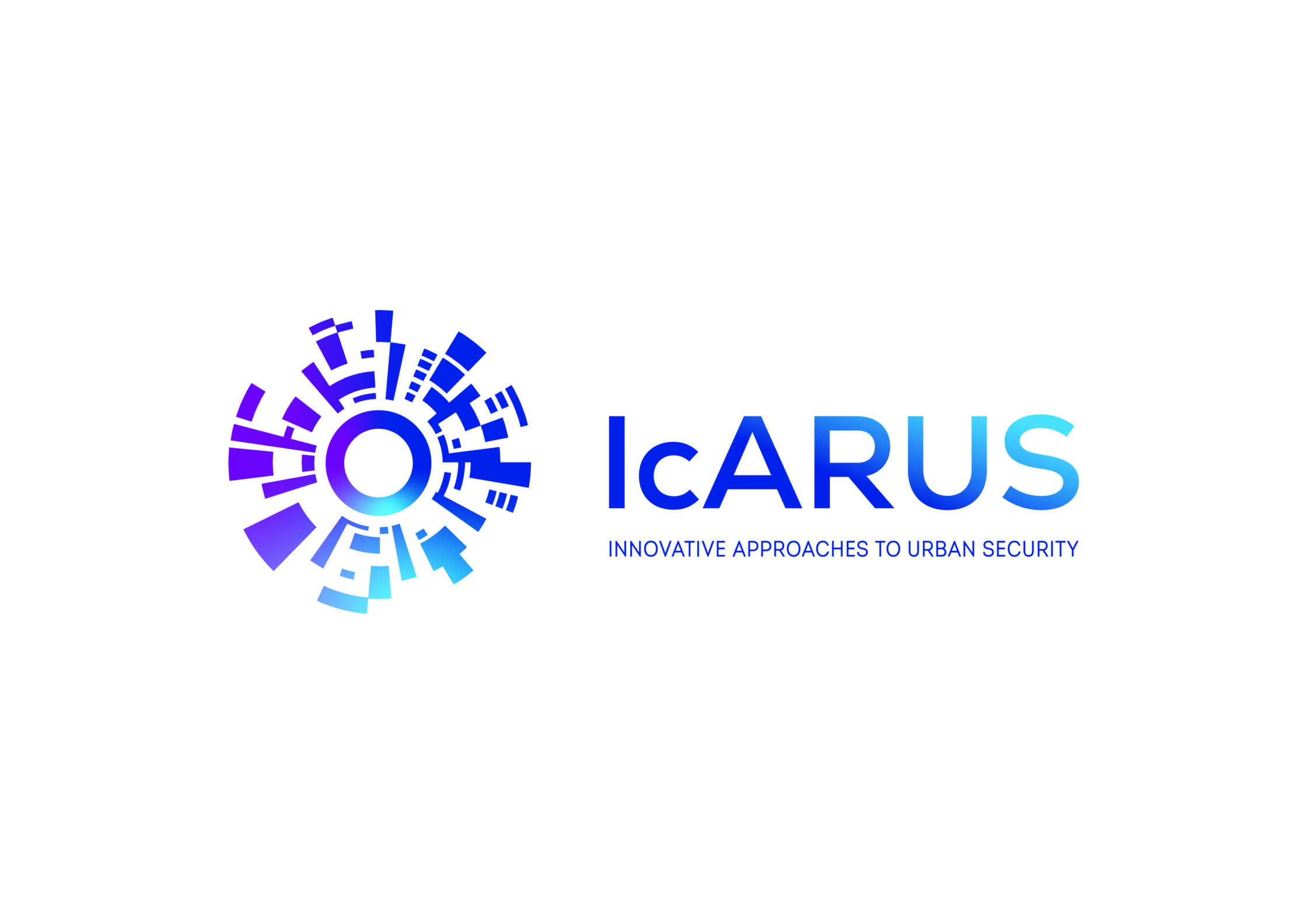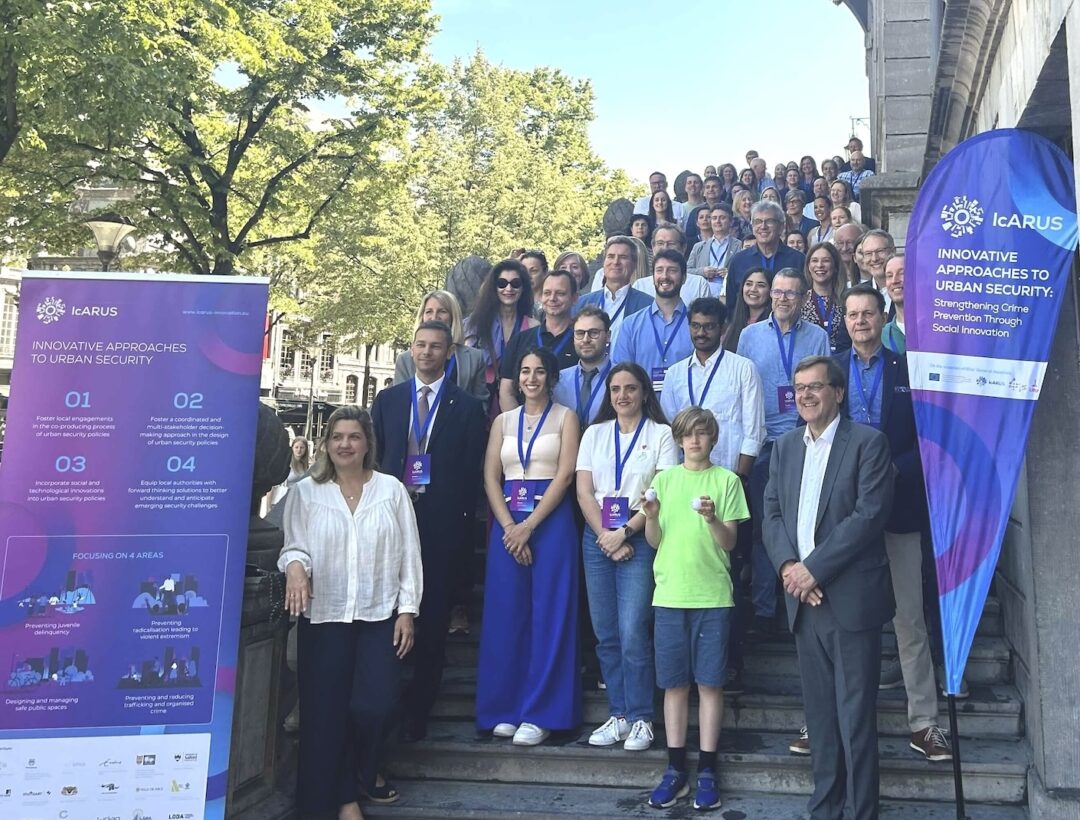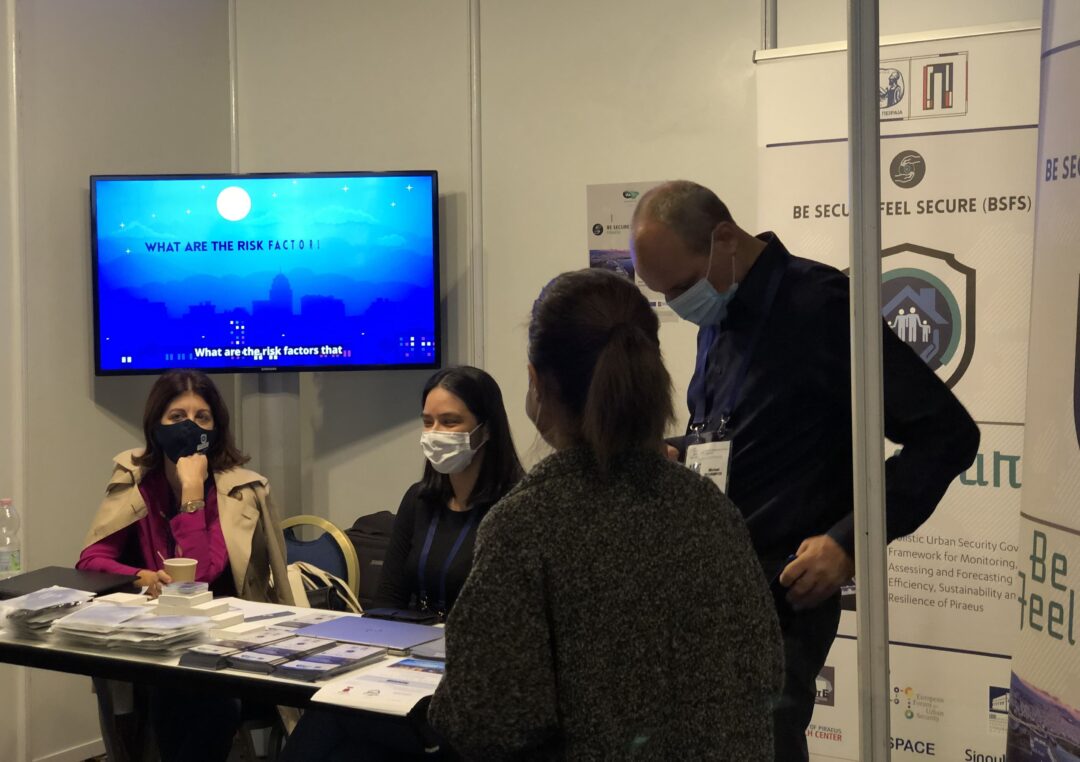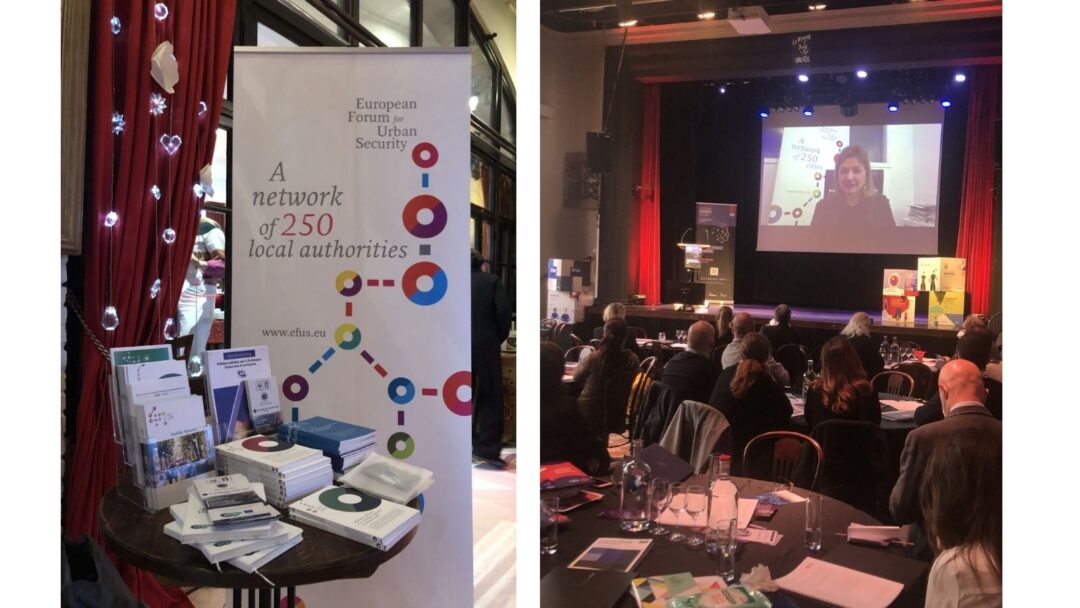March 2022 – The Efus-led IcARUS project held (online) a coordination meeting on 7 February to discuss the project’s progress as well as the forthcoming coordination meeting and workshop in Berlin on 11-13 April and the mid-term conference that will be held on the occasion of Efus’ General Assembly meeting in Riga (Latvia), on 12-13 May.
Gathering 17 European partners, this large-scale, four-year project (September 2020 – August 2024) seeks to “rethink, redesign and adapt existing tools and methods to help local security actors anticipate and better respond to security challenges.”
Ethical aspects
The partners discussed the ethical principles that underpin IcARUS and are being applied in all its activities and outcomes. These are: non-discrimination, non-bias, the respect of privacy, no stigmatisation, transparency, safety, and accountability. Founded on the values promoted by the EU in all its projects and activities, these principles mean that IcARUS seeks to respect citizens’ fundamental rights and freedoms both in its modus operandi and in the tools and activities it produces.
State of the art and collection of practices and tools
Adam Crawford, Director of the Leeds Social Sciences Institute at the University of Leeds, gave an update on the state of the art review his team is conducting to assess how European security policies, practices and tools have evolved over the past 35 years.
Efus then presented the research it conducted to gather promising practices and tools put in place by local and regional authorities in the four domains covered by the project, which are: preventing radicalisation leading to violent extremism; preventing juvenile delinquency; designing and managing safe public spaces, and reducing and preventing trafficking and organised crime.
Efus and the project partners conducted 36 interviews and a desktop review of 21 local security strategies from 17 local and 4 regional authorities from 10 European countries. Cities’ and regions’ priorities according to IcARUS’ focus areas are spread as follows: 67% of cities stated radicalisation is their biggest priority, 57% public spaces, 52% juvenile delinquency and 33% trafficking and organised crime. The results of this research will be presented at the project’s next coordination meeting, in Berlin (see below).
Partner cities’ focus areas
The project’s six partner cities then shared their focus areas within the project, and the main obstacles they’re faced with. Lisbon (PT) has identified juvenile delinquency as its priority, and the lack of involvement among the concerned families. The same issue has been selected by Turin (IT), notably conflictive relations between young people and the police and school dropout. Riga (LT) is focusing on public spaces, having established that the design of their public spaces is too old to prevent modern threats and that crowded public spaces are an issue. For Rotterdam (NL), the priority is organised crime, notably its presence in a local business park. Stuttgart (DE) has chosen to focus on radicalisation, noting that its population is increasingly prone to hate speech, resistance against the Covid vaccine, and values that question democracy.
A workshop in Berlin in April
Another item on the meeting’s agenda was the upcoming workshop and coordination meeting scheduled in Berlin (DE) on 11-13 April. Combining a one-day coordination meeting and a two-day workshop, the event will be an opportunity for the partners to further discuss the state-of-the-art review conducted by the University of Leeds and the inventory of practices and tools led by Efus, as well as the priorities set out by the six partner cities. Furthermore, participants will discuss how to adapt the knowledge gained through IcARUS to their specific local context.
Mid-term conference in Riga
Scheduled to take place on the occasion of Efus’ General Assembly meeting in Riga, on 12-13 May, the mid-term conference will be a milestone in the IcARUS project. Under the title 35 years of local urban security policies: What tools and methods to respond to tomorrow’s challenges? it will gather some 150 participants, including the whole consortium and members of the Expert Advisory Board and Consultative Committee of Cities, Efus members and other stakeholders, notably from similar projects. Over a day and a half, participants will have the opportunity to take part in thematic and interactive workshops and panels, taking stock of 35 years of local urban security policies and discussing how to adapt existing tools and methods to anticipate and respond to security challenges at a local level.
> Efus invites all interested members to register (free of charge) for this exceptional event.





